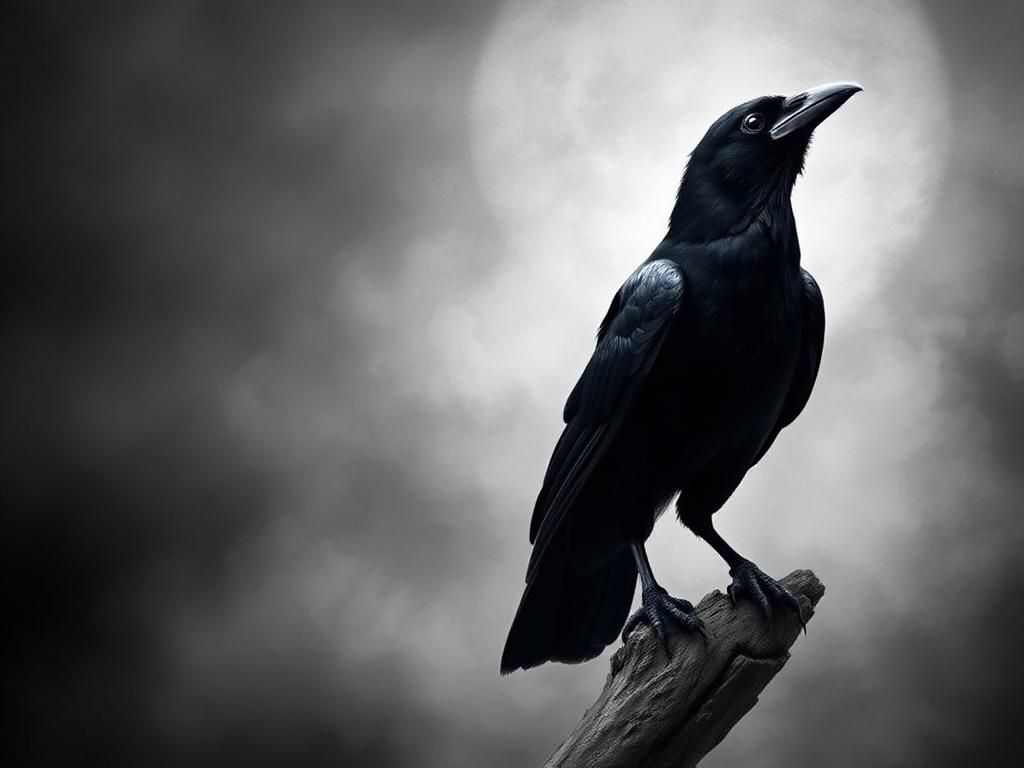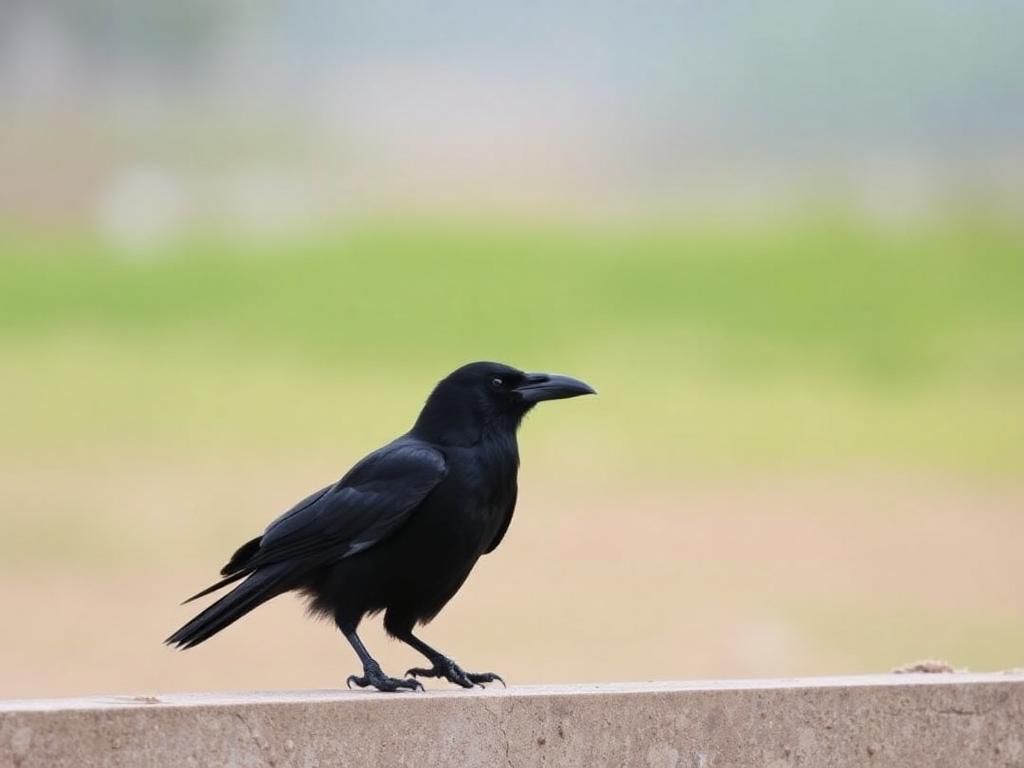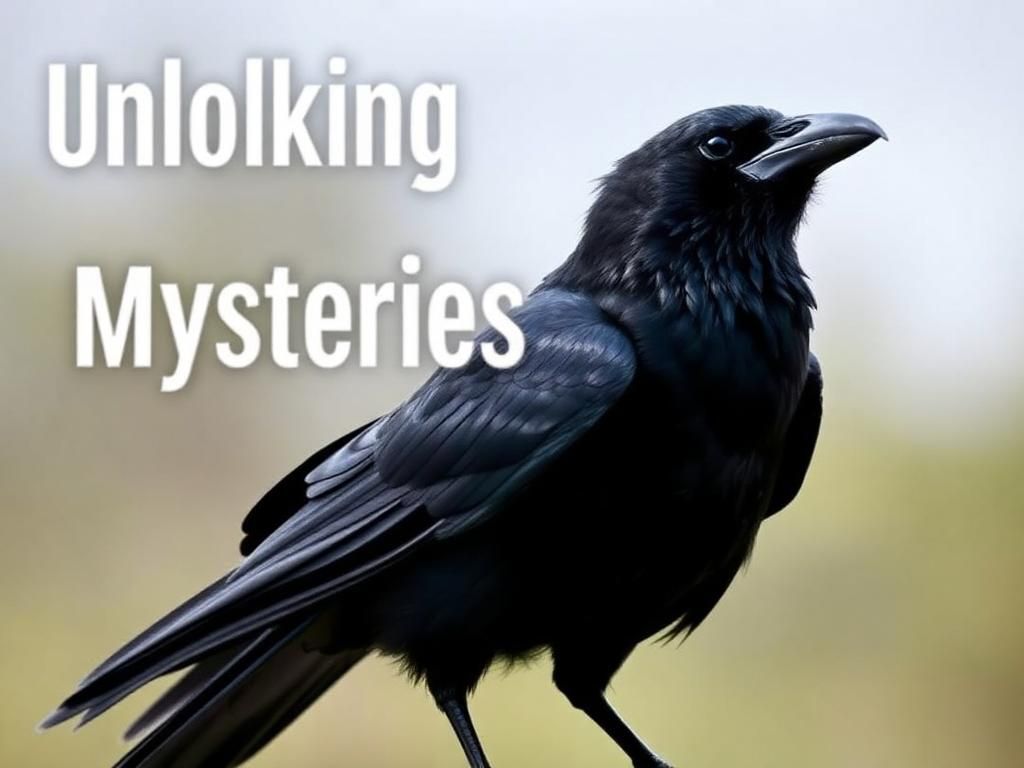Crows are fascinating birds that have captivated human imagination across cultures and centuries. Their presence in folklore, mythology, and literature has made them symbols of various meanings, often reflecting deeper cultural beliefs. This article will explore what the crow symbolizes in different contexts, from ancient civilizations to modern interpretations, offering insights into the importance of this avian figure.
Historical Context of Crow Symbolism
Ancient Civilizations
In ancient civilizations, crows held significant symbolic weight, often associated with powerful deities and spiritual beliefs.
Egyptian Mythology
In Egypt, crows were linked to the sun god, Ra. They were seen as protectors of the realm of the dead and were symbols of transformation and the afterlife. The black feathers of crows represented mystery and the unknown, reinforcing their association with the spiritual journey beyond death.
Native American Cultures
Among Native American cultures, crows were often depicted as trickster figures, embodying both wisdom and folly. For example, in Navajo and Cherokee stories, crows symbolize change and adaptability, showcasing their ability to navigate various environments and circumstances, reflecting the challenges and transformations in life.
Celtic Traditions
In Celtic traditions, the crow was associated with the goddess Morrigan, a powerful figure linked to fate and war. Crows were believed to foretell the outcomes of battles and were seen as omens, highlighting their role in determining human destinies.
Cultural Interpretations Throughout History
Crows have made their mark in folklore and literature, enriching cultural narratives and moral teachings.
Folklore and Literature
Crows feature prominently in Aesop’s Fables, where they often embody wisdom and caution, teaching lessons about cleverness and resourcefulness. In Edgar Allan Poe’s famous poem “The Raven,” the crow takes on a more melancholic role, symbolizing grief, memory, and the supernatural, engendering a sense of mystery and foreboding.
Art and Literature Representations
Artistic representations of crows can be observed throughout history, from ancient artifacts to modern fiction. They are often depicted in visual arts, representing both beauty and darkness, sparking intrigue and contemplation among audiences.
Symbolism in Various Cultures
Crows in Western Cultures
In Western cultures, crows are imbued with a blend of fear and fascination, often connected to death and the supernatural.

Death and the Supernatural
Crows are frequently associated with omens and divination. In folklore, they are viewed as harbingers of death, bringing messages from the spirit world. The dark figure of the crow in many stories embodies the unknown, raising questions about mortality and what lies beyond.
Intelligence and Adaptability
Scientific studies have recently highlighted the remarkable intelligence of crows, showcasing their problem-solving skills and adaptability. This has transformed their symbolism into one of cleverness and resourcefulness, demonstrating their ability to thrive in diverse environments.
Crows in Eastern Cultures
Crows also have unique meanings in various Eastern cultures that differ from their Western interpretations.
Japanese Culture
In Japan, crows are associated with Shinto beliefs. They symbolize loyalty and family, serving as protectors. The crow is also linked to the sun and is seen as a guide for lost souls, exemplifying their noble characteristics within families and communities.
Chinese Symbolism
In Chinese culture, the three-legged crow, known as the “sān tuǐ yī yā,” represents the sun. It symbolizes good fortune and positivity, embodying the idea of unity and harmony within nature.
Psychological and Philosophical Symbolism
Crows as Symbols of Transformation
Crows represent the complex themes of death and rebirth, reflecting natural cycles. In many cultures, the crow is seen as a guide for souls transitioning between lives, emphasizing the interconnectedness of life’s cycles.
Crows also embody the philosophy of nature’s balance, serving as reminders of the impermanence of life and the inevitable changes that accompany it.
Crows in Jungian Psychology
In Jungian psychology, crows can be viewed as a symbol of the shadow self. They represent deep-rooted fears and insecurities that individuals must confront for personal transformation. By facing these darker aspects of oneself, one can achieve greater self-awareness and growth.
Crows in Modern Culture

Media Representation
Crows have made their way into media and pop culture, influencing narratives and contemporary symbolism.
Crows in Film and Television
Films like “The Crow” encapsulate the themes of rebellion and transformation, using the crow as a powerful emblem of vengeance and justice. Such representations have made crows icons of freedom, appealing to audiences’ desire for empowerment.
Symbol of Rebellion and Freedom in Contemporary Narratives
Crows have become ingrained in various narratives, symbolizing nonconformity and the quest for identity in a modern context.
Common Misconceptions About Crow Symbolism
Distinguishing Between Myths and Facts
There are prevalent misconceptions regarding crows that stem from their dark imagery.
Crows vs. Ravens
While often confused, crows and ravens hold different symbolic meanings. Crows are generally seen as symbols of intelligence and resourcefulness, whereas ravens often embody mystery and prophecy. Understanding these differences can clarify the unique symbolism of each bird.
Understanding Cultural Sensitivities
It is crucial to approach crow symbolism with a thoughtful perspective, recognizing the diverse interpretations across different cultures. By doing so, one can appreciate the depth of these symbols without falling into cultural appropriation.
Conclusion
Throughout this exploration of what the crow symbolizes, a myriad of meanings has emerged, demonstrating the bird’s complex role in human culture. From ancient mythology to modern media, crows continue to enthrall us with their presence and signify profound themes. Reflecting on these interpretations invites us to appreciate the crow’s significance in our own lives.
References
| Culture | Symbolism | Notable Associations |
|---|---|---|
| Egyptian | Transformation, Afterlife | God Ra |
| Native American | Trickster, Change | Navajo, Cherokee |
| Celtic | War, Fate | Goddess Morrigan |
| Japanese | Loyalty, Family | Shinto beliefs |
| Chinese | Good Fortune | Three-legged Crow |
FAQ
- What does the crow symbolize in different cultures? Crows symbolize various things, including transformation, intelligence, and spirituality, depending on the cultural context.
- Are crows considered good or bad omens? This varies by culture; some see them as messengers of death, while others view them as symbols of adaptability and cleverness.
- How do crows represent intelligence? Scientific studies demonstrate crows’ exceptional problem-solving skills, making them symbols of cleverness.
- What role do crows play in literature? Crows are often portrayed as symbols of wisdom or foreboding, influencing character development and thematic elements.
- How are crows incorporated into modern media? Crows often symbolize rebellion and empowerment in films and literature, becoming icons of personal transformation.
- What is the significance of crows in psychology? In Jungian psychology, crows can symbolize the shadow self, representing fears and personal transformation.
- Why is it important to understand crow symbolism across cultures? Understanding cultural sensitivities helps avoid cultural appropriation and promotes respectful interpretation of symbols.
- How can individuals connect with the symbolism of crows? Reflecting on personal experiences with crows can foster a deeper understanding of their significance in one’s life.
